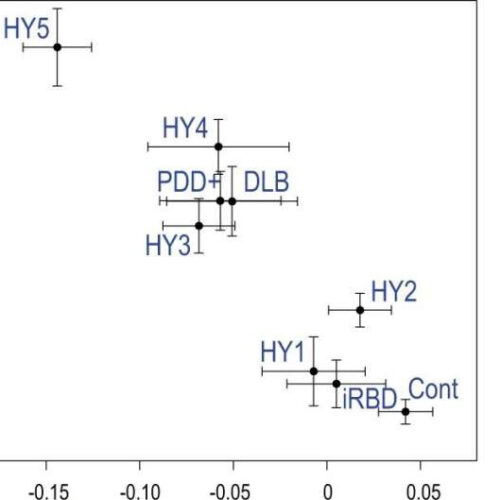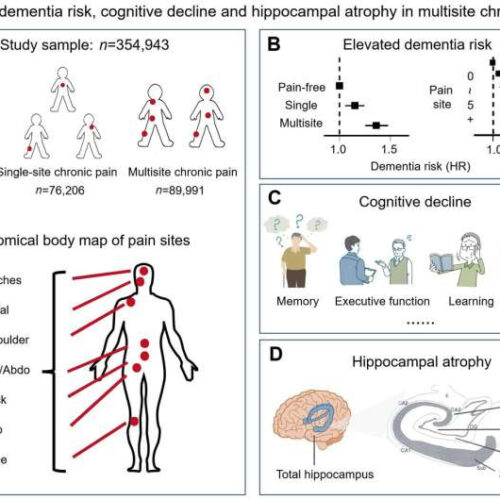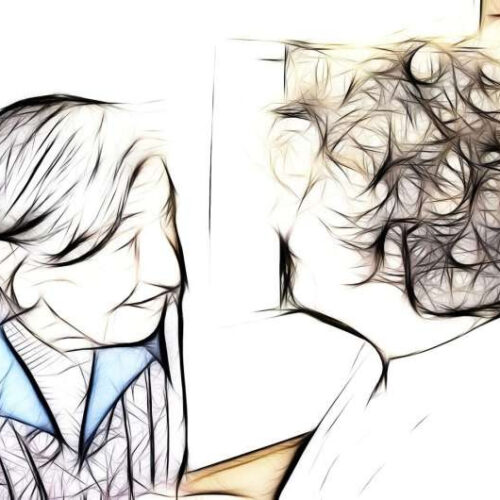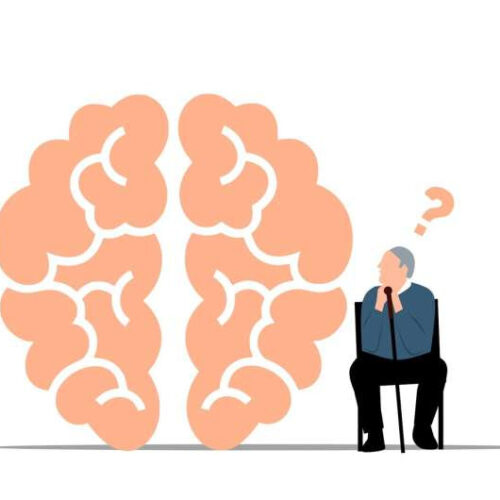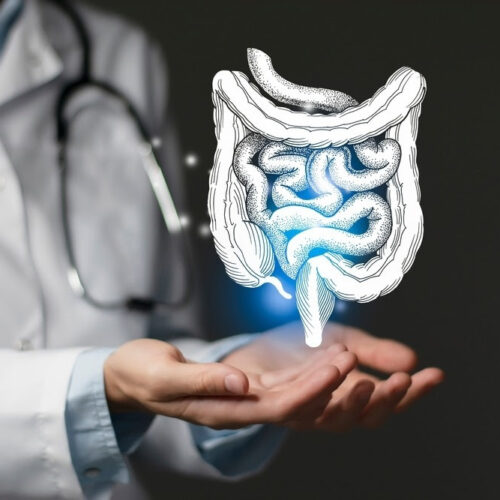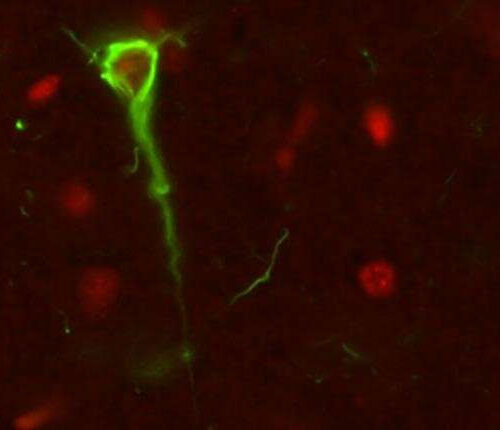by Yen Ying Lim, The Conversation Credit: Shutterstock Dementia is an umbrella term to describe a progressive neurological condition that affects people’s cognitive abilities, such as memory, language and reasoning. Alzheimer’s is the most common form, but other common forms include vascular dementia, Lewy Body dementia and frontotemporal dementia. It’s not uncommon for people living with dementia to experience fluctuations...
Tag: <span>Dementia</span>
Researchers identify three intestinal bacteria found in dementia with Lewy bodies
by Nagoya University PCoA and tmap plots. a PCoA plot showing the centers of gravity and the standard errors of the overall compositions of gut microbiota in nine disease states. Bray-Curtis distance was used as a distance metric. b An integrated topological map, tmap, showing how close genera, disease states, and clinical features are to...
Peptide breakthrough could mean dementia aid is right under your nose
By Bronwyn Thompson March 01, 2023 An oral or nasal spray delivering peptides to the brain may be able to halt neurodegeneration Depositphotos Scientists have discovered a novel way to halt nerve cell death in the most common forms of motor neuron disease and frontotemporal dementia, which could transform how these neurodegenerative conditions are treated....
BRUCE WILLIS HAS FRONTOTEMPORAL DEMENTIA. WHAT IS IT?
Frontotemporal dementia (FTD) is a group of disorders characterized by a progressive degeneration of nerve cells in the frontal lobe or the brain regions underneath the ears. At the Boston University Alzheimer’s Disease Research Center, Andrew Budson, a cognitive and behavioral neurologist and cognitive neuroscientist, studies dementia, including FTD. An expert on memory in people with Alzheimer’s disease and other...
More pain, more burdens: Researchers find link between chronic pain and dementia
by Chinese Academy of Sciences Elevated dementia risk, cognitive decline, and hippocampalatrophy in multisite chronic pain. Credit: Tu Yiheng A research team led by Dr. Tu Yiheng from the Institute of Psychology of the Chinese Academy of Sciences has found that people with chronic pain in multiple parts of the body had a higher risk of dementia...
10 ways to reduce your risk of dementia
by Erin Fox, University of Michigan Credit: Pixabay/CC0 Public Domain Dementia affects millions of Americans—including nearly one in 10 adults over age 65. While the causes of different dementias vary, a 2020 report from a Lancet commission identified several modifiable risk factors that together account for around 40% of dementia worldwide. This means that many dementia cases might be prevented...
Drug linked to lower risk of dementia in people with diabetes
by American Academy of Neurology Credit: Pixabay/CC0 Public Domain People with diabetes are twice as likely to develop dementia as those without the disease. In a new study, people with newly diagnosed type 2 diabetes who took the diabetes drug pioglitazone were less likely to later develop dementia than those who did not take the...
New hope for first treatment for strokes linked to dementia
by University of Nottingham Credit: Pixabay/CC0 Public Domain Two cheap and common drugs could be re-purposed as the first specific treatment for people who experience a type of stroke linked to nearly half of all dementias, according to the results of new research. A clinical trial run by the University of Nottingham and University of Edinburgh...
What do gut microbiota have to do with Alzheimer’s and dementia?
By Pooja Toshniwal Paharia Feb 6 2023 Reviewed by Benedette Cuffari, M.Sc. In a recent study published in the journal Mechanisms of Ageing and Development, researchers explore the preventive and therapeutic potential of gut microbiome (GM) modulation in reducing the risk of and improving the symptoms of Alzheimer’s disease (AD). Study: Gut-brain axis through the lens of gut microbiota...
Overlooked tau-RNA interaction may play key role in dementia
by University of Washington This antibody staining experiment shows tau-RNA complexes that have been dyed green. The tau-RNA complex staining strongly resembles neurofibrillary tangles, a hallmark of most kinds of dementia. Credit: Pamela J. McMillan Sometimes in science, “Eureka!” moments happen with surprisingly little effort. Sometimes they take years or decades to emerge. Such was...


